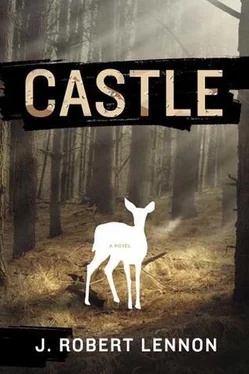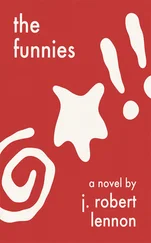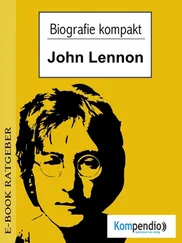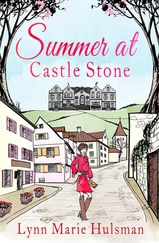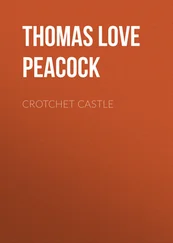Something, however, stood in front of that wall: a small wooden table. It was old, a bit lopsided, the kind of table one might find in a child’s playhouse or a kindergarten classroom. On it lay an apparently random collection of objects. Something about them — some familiar pattern in their arrangement — made me take a step closer.
As if in keeping with the table, the objects seemed to belong to a child. There was a homemade slingshot, made from a stout branch and a thick rubber band; there was a military action figure — a G.I. Joe. These lay beside a mushroom hunting guide, a small canteen, a penknife, a cigar box full of bones.
I should clarify here that the cigar box was closed. Yet I knew that it contained bones — the tiny bones of birds and squirrels, and perhaps the husks of cicadas. The box was cardboard, with a fabric-hinged lid, and it bore the name CABAÑAS above a kind of heraldic crest. The lip of the box was ragged with torn paper, which once had sealed in the cigars.
I reached out and ran my thumb along the lip, feeling the paper’s uneven edge. After a moment, I lifted the lid.
It was just as I had imagined. Several skulls, some of them beaked, and a scattering of tiny thin bones. The cicadas’ husks were in a separate compartment, an unlidded jewelry box, to keep them intact. From underneath the bones poked the corner of a thick, folded piece of paper; even as I reached for it I knew that it was a map, a hand-drawn treasure map, marking the places in and around my childhood home where I had concealed things that were valuable to me. The weightless bones clattered faintly as I drew out the map; it unfolded with a dry rustle, revealing the drawings and symbols I knew would be there, rendered in pencil, then traced over with calligraphic ink. There was the house, the shed; there stood the catalpa tree and the sugar maples. The trash pit, the gravel drive — it was all there, the diagram of my childhood, as I had drawn it thirty-five years before.
The smoke in the room was thick and choking; the flickering of the fire cast disorienting shadows across the walls, and I gazed down at my lost possessions: my slingshot, and my book, and my canteen. All of it was mine.
From behind me, over the crackle of the fire, I heard the small noise of a bare foot shifting against the dirt floor.
I stood and turned. It was him. He held a hollowed-out twig to his mouth and, with a terrible grin, blew. I felt something sting my face, and moved my hand to brush it away. But my hand merely hung at my side, immobile.
My knees buckled and I lost my balance; my arm landed in the fire. The old man acted quickly to move it, tucking it in close to my body, and as I lost consciousness I felt gratitude for his alertness and concern, and tried, but failed, to form my lips into a gesture of thanks.
I don’t know where or how my father met Avery Stiles, but it is not difficult to imagine a scenario by which the two, working after hours on campus — my father at his maintenance chores and Professor Stiles on his research — struck up a conversation and, eventually, a friendship. My father, though cold and distant with his family, was quite amiable around others. In retrospect, this may seem strange, but as a child I never thought to question the drastic change in personality that overtook him at the hardware store, the bank, the municipal dump, when he encountered perfect strangers. I accompanied him on these errands for many years, and distinctly recall the tense silence that enveloped the truck as we drove. My father’s back never seemed to touch the seat — he leaned forward, his chin out over the steering wheel his bony fingers gripped, his jaw tight, his eyes darting across his field of vision. Any attempt on my part to speak was met with a terse “Quiet,” and so I sat in nervous boredom, my body rigid, waiting for the journey to end.
But when we reached our destination and climbed down from the truck, my father changed into a different person. His compact frame loosened, his forehead smoothed, his hooded eyes grew wide. When he encountered a familiar face, he initiated a handshake from ten feet away, striding forth with a confident gait and a broad smile. He chatted with great intensity, usually about the weather, or a description of some project he was engaged in, and people in town seemed to like him. You wouldn’t think, looking at such a man, that he was friendless. Indeed, he appeared to enjoy broad social acceptance in our town. And then, when his errand was over, and he turned his back on his acquaintances, his face and body tightened up again, and by the time we climbed back into the truck, he had assumed his usual truculent demeanor.
I was not conscious, at the time, of harboring any particular feelings about my father’s transformations. Now, of course, it is easy to imagine that I must have felt jealous, that I wished he would bestow this kind of cheer upon my mother and me. But the truth is, I don’t remember feeling that way, and I don’t believe I did. I didn’t regard this version of my father as having anything to do with my mother and me. I thought of the cold, angry man I knew as my real father, and this gregarious fellow as a character he played. If anything, his manner embarrassed me — living as I did, I had come to regard this kind of social display as foolish and false, and though I have since overcome this misapprehension, I remain uncomfortable in my relations with others. But I digress.
Quite probably my father was very friendly to those he encountered at the college. And I suspect that he regarded himself as the equal of any professor who taught there — indeed, he likely considered himself more intelligent than the average academic, and he might well have been right. So it was not surprising that he would befriend a man like Professor Stiles, a misfit in the university community whose work had fallen into disfavor with his colleagues and superiors. He and my father were outsiders, and natural allies. This, anyway, is what I imagine may have been the case.
In any event, it came to pass that Doctor Avery Stiles was invited to our house for dinner one night, and my mother ordered to prepare some elaborate meal. I don’t recall what it was we ate, but my father spent an unprecedented amount of time in the kitchen, overseeing her work, dipping his fingers into things, demanding to know what she was doing and why she was doing it. I was a boy at the time — I would guess around eight — and understood only that a guest would be coming for dinner, and that I was supposed to be on my best behavior. Largely, though, I expected to be ignored that night, because it was my sister who was the ostensible focus of the evening.
Jill was around thirteen and in the early stages of her delinquency. She had begun to smoke cigarettes — I had seen her and her friends doing it behind the school — and wear makeup, and she sulked in the presence of my parents and often disappeared when family meals were in the offing. Perhaps as a result, she had lost weight, and no longer looked like the child she must still have been. She had begun to take on the twiggy roughness that she would settle into, in her adulthood.
I didn’t fully understand what my parents were talking about before Doctor Stiles’s arrival at our house. But it seemed to me that Doctor Stiles had been called in to meet Jill, assess her social problems, and suggest some course of action that would “cure” her. My mother insisted that she didn’t like the idea of a “psychologist coming into our house,” and my father said that he wasn’t a psychologist, he was a scientist, and he would “use science on her.” After a while the discussion became heated, and my mother, as always, backed down. But the evening was already unprecedented, not only because a college professor was coming over, but also because my parents had spoken to each other at such length, and with such passion.
Читать дальше
